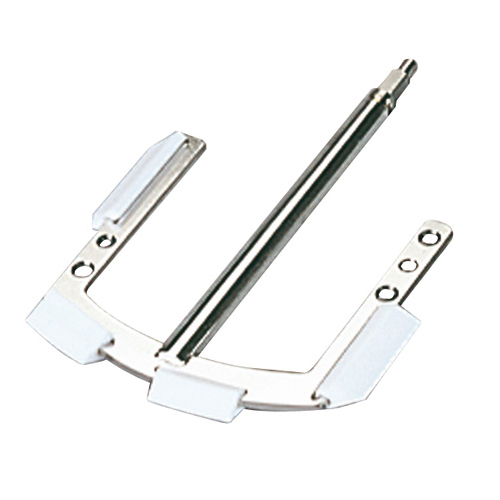
Gunther
Forum Replies Created
-
Gunther
MemberDecember 1, 2018 at 3:39 am in reply to: Something in the formula stops carbomer from forming a gel@ngarayeva001
I don’t think 1.5% Polysorbate 20 will be enough to emulsify 12% oils, 4% glyceryl oleate and 1% sorbitan oleate.BTW is that sorbitan oleate actually Polysorbate 80?
IMO you’d be better off with a ready-made, commercial emulsifier that both emulsifies and thickens.
-
IMO Sodium bicarbonate will leave a white residue on floors, when the cleaner evaporates.
Remember floors ain’t rinsed like shampoos and body soaps.CAPB might leave a slippery or sticky afterfeel.
-
Did you try a more concentrated dishwash?
I’m having trouble with neutralized LABSA being cloudy at 15%+ LABSA. -
ravimosai said:
benzalkonium chloride solution 40%: 4.5%
lauryl alcohol ethoxylate: 3%
Sles: 0.5%
IPA: 8%
CAPB: 1%
Pine Oil: 5%
Water to 100%
Fragnance QS
Colour QSAny feedback??
Pine oil is too high
I wonder if 8% IPA will be enough to make pine oil hold in solution without emulsifiers.
Also, 5% pine oil will be expensive
Even Pine-Sol no longer contains any pine oil
https://en.wikipedia.org/wiki/Pine-SolDrop SLES and replace with a glucoside or sulfonate.
Alcohol ethoxylate may be higher if you want.
-
Gunther
MemberNovember 28, 2018 at 9:36 pm in reply to: Help with selecting equipment for small manufacturing setupBesides a bouble boiler,
try to get forceful slow rotating (50 rpm or less) mixer with rubber skirts that scrapes the tank wallssomething that works like this just larger scale, of course

if you can’t find one, you can have a conventional stirrer customized to add rubber scrapers. Stainless steel is easy to weld.
Just make sure everything, including the nuts and bolts holding the rubber skirt, are made of stainless steel.
-
Gunther
MemberNovember 27, 2018 at 11:36 pm in reply to: Help substituting BTMS - Needs to be Sulfate and palm freeCetrimonium chloride about 4-5% on an active basis
with 2-3% cetearyl alcohol can make a nice BTMS like conditioner. -
Ethylene glycol is banned and poisonous. Try replacing with butyl cellosolve.
Drop SLES if you already have a glucoside. Less chance of leaving streaks on glass.
IPA is quite low, so it will take forever to dry.
-
Gunther
MemberNovember 27, 2018 at 11:26 pm in reply to: Something in the formula stops carbomer from forming a gelngarayeva001 said:Hello All,There is something in my formula that stops sodium carbomer from forming a gel. I did a kick-out experiment and ended up with what I think shouldn’t cause any issues, but I still can’t make it thicken. Any advice is appreciated.
Formula:A Aqua 74.55% A Tetrasodium EDTA 0.20% A Glycerine 2.00% A Butylene Glycol 2.00% A Propanediol 1.00% B Jojoba oil 6.00% B Shea butter 3.00% B Petrolatum 3.00% B Tocopheryl Acetate 0.20% B Tocopherol 0.50% B Sorbitan Oleate 1.00% B Glyceryl Oleate 4.00% B Polysorbate 20 1.50% C Sodium Carbomer 0.30% C Paraben DU/phenoxyethanol 0.75% I tried sodium carbomer, ultrez 20 and ultrez 30 (when last two were used I neutralised it with TEA). Nothing works.
Was the formula well emulsified, and not separating before adding carbomer?
I believe it has too many oils and little sorbitan oleate and Tween 20.Try with a ready made, commerical emulsifier.
Also, try without EDTA
-
Right now science can’t tell why only some people get symptoms from bacteria.
Like Helicobacter pylori. 50-70% of the population has it
yet only a few get ulcers from it. -
Ketoconazole in the Treatment of Acne in Women
Arch Dermatol. 1986;122(6):629. doi:10.1001/archderm.1986.01660180029008FullTextAbstractTo the Editor.— The great interest recently aroused by the use of antiandrogens in dermatology1 prompts us to report the preliminary results that we obtained using a new antiandrogen, ketoconazole, in the treatment of acne and hirsutism in women. Ketoconazole, an oral imidazole antifungal drug, is a potent inhibitor of testosterone synthesis that has been recently used to induce and maintain a remission in patients with advanced prostatic cancer.2,3 In the last few months, we have used oral ketoconazole in the treatment of three female patients affected by severe acne and hirsutism.At the start of therapy, serum total testosterone levels were raised in all three patients, ranging from 1.12 to 1.54 ng/mL (normal, 0.36 to 0.80 in women and 2.58 to 7.78 in men). Ketoconazole was administered at the dosage of 300 mg twice daily for three months. No topical therapy was added. All three patients experienced
https://jamanetwork.com/journals/jamadermatology/article-abstract/547234
-
-
-
Lots of different substances in fragrance, so maybe some of those aren’t oil soluble.
You may need a water in oil emulsifier. -
Gunther
MemberNovember 24, 2018 at 7:44 pm in reply to: Should I dilute sulfonic acid before neutralizing it with Sodium hydroxide ?I wonder if 15% LABSA is too much
This 3X concentrated liquid laundry detergent advises to use
‘First add deionized water (29.15%), followed by potassium hydroxide 45% solution (6.1%) in an appropriate beaker. Start mixing and slowly add Calsoft LAS-99 (10%) …’
https://www.happi.com/contents/view_features/2012-04-02/formulating-liquid-laundry-detergentsPilot Chemical’ Calsoft LAS-99 seems to be 97%+ pure LABSA (DDBSA = LABSA as far as I know)
OTOH this premium dishwash formulation advises 9.60% or 19.20% DDBSA
https://www.happi.com/contents/view_/2011-03-04/formulating-manual-dishwash-detergents
The chart is too small to read but the transcript can be read here
https://www.thefreelibrary.com/Formulating+manual+dishwash+detergents%3A+an+optimum+hand+dishwash…-a0252100205And that using Sodium hydroxide, it doesn’t mention that Potassium hydroxide is really needed (Potassium salts are usually more soluble than Sodium ones).
-
Newer research says acne is mostly a bacterial disease, mainly be propionyl bacterium acnes causing inflamation.
While Testosterone/DHT increases sebum production buy skin cells, lots of women with no excess androgen diseases (i.e. PCOS).
I don’t think any fatty acid can kill bacteria.
I don’t believe it’s wise to supplement with ANY kind unsaturated acids, as they create lots of free radicals when they are broken down.Some essential oils seem to have antibacterial activity that might kill or reduce the acnes bacteria.
-
Studies show topical niacinamide, creatine and folic acid have great potential.
-
IDK but you can find a lab with GC-MS or better yet LC-MS/MS equipment to test it for you.
-
Gunther
MemberNovember 23, 2018 at 10:21 pm in reply to: low irritant 80 % of total actives are CAPBFekher said: who have idea about the effect of using high level of betaine “CAPB” 80% or higher of total actives in the irritant effect of product?
who have idea about the effect of using high level of betaine “CAPB” 80% or higher of total actives in the irritant effect of product?The odd thing is that 100% CAPB is more irritating than 90%.
-
Tretinoin wins hands down
Hydroquinone works too, but check its regulations in your country. -
Gunther
MemberNovember 22, 2018 at 7:43 pm in reply to: Brainstorming: What are your favorite fragrance emulsifiers?chemicalmatt said:PolySugaMulse D-9 hands down the best. Use ratio ~3:1but as everyone here said: all depends on what. Cyclomethicone? Yeesh!May I ask what’s wrong with using cyclomethicone?
Is that because it’s restricted in the EU? -
Perry said:@Gunther - To join as a general member…”General Membership is available to persons engaged in scientific or technical work in the cosmetics and toiletries industry or in related governmental or academic areas, who have earned a Bachelor’s Degree in the chemical, physical, medical, pharmaceutical, biological or related sciences and technology. “
But you can also join as an Affiliate member - “Available to persons interested in the objectives of the Society, but not qualified for General Membership. National Affiliates are entitled to all membership privileges, except that they may not vote or hold elected office within the Society or its Chapters. (Please note: after seven consecutive years in good standing, all National Affiliates are automatically upgraded to General Members.)”
Do you know what do you have to do once enrolled as a SCC member?
Do you answer other member questions like in chemistscorner ? -
Perry said:That’s why using a formaldehyde donor like DMDM Hydantoin, Imidazolidinyl Urea, or Diazolidinyl Urea can work.
Do formaldehyde donors pass regulations for free formaldehyde (after being left standing for a while so enough formaldehyde has been released)?
-
Gunther
MemberNovember 22, 2018 at 12:20 am in reply to: Is high CAPB making no-sulfate handwash sticky?ngarayeva001 said:@Gunther, I dont think so. I am making a similar product. Total active surfactants 10%, out of which 80% is CAPB. Remaining is coco glucoside and decyl glucoside. Also in a foaming bottle, and preserved with parabens. Maybe you are using too much of decyl glucoside?Is that 8% active CAPB
and 2% active glucosides
I mean are the % stated meant for active ingredient ?

